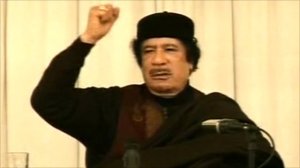 President Obama has signed three free trade agreements with South Korea, Colombia, and Panama. Free trade agreements are important in America, because it opens new markets, and it creates jobs in our country. These trade agreements were started by President Bush, and President Obama completed the deal after he was sure that American workers were protected, and environmental practices were followed.
President Obama has signed three free trade agreements with South Korea, Colombia, and Panama. Free trade agreements are important in America, because it opens new markets, and it creates jobs in our country. These trade agreements were started by President Bush, and President Obama completed the deal after he was sure that American workers were protected, and environmental practices were followed.
Many believe that this free trade agreement is as important as the North American Free Trade Agreement (NAFTA). NAFTA is one of the most successful trade agreements in history, and has contributed to increasing trade and investments between the United States, Canada, and Mexico. The goal of NAFTA was to eliminate barriers to trade and investments, and eliminate most of the tariffs.
As a result of NAFTA, Mexico and Canada are the first and second largest export markets for United States agricultural products. This free trade agreement has benefited farmers, ranchers, investors, and consumers.
Trade will not go away as an issue with the Obama administration. These three new trade agreements will bring the number to 20 countries that have free trade agreements with the United States. The Republicans wants the president to be more aggressive in finding more free trade deals with other countries.
“From day one the guiding principle has been not just to complete the three trade agreements, but to develop a new paradigm for trade, and rebuild and restore America’s confidence in our trading policy. The administration is on track to reach Obama goal set early last year of doubling US exports over a five-year period,” said US Trade Representative Ron Kirk.
Trade agreements have always been a tricky business because you always want to do business with a friend, but that is not always the case. In many countries around the world, they levy high tariffs on US goods, and Americans allow them to ship their goods to our country with few or no duties. Many countries are trying to control their economy and keep American products out of their markets.
Nevertheless, supporters say these three deals are a winning proposition for American businessmen and farmers, who face high tariffs in these three countries. The deal in South Korea could boost exports by $10 billion and increase exports in Colombia by $1 billion. Many of the experts think that these three deals can create 70,000 jobs for Americans.
Agriculture Secretary Tom Vilsack says, “Overall, these agreements are a win for the American economy, they mean higher incomes for farmers and ranchers, more opportunities for small business owners, and jobs for folks who package, ship, and market agricultural products.”
President Obama is also getting applause from other industries. The following statement is attributable to the president Gary Shapiro of The Consumer Electronics Association.
“The Congress passage and now Presidential signing of these free trade agreements is the first major action in five years on free trade. It tells the world that the US is back in business and wants to remain a global player. Enacting these three agreements will strengthen our economy. Free trade has helped foster a high-tech boom, created more than 25 million jobs during the past 15 years, and increased real wages for U.S. workers.”
As President Obama continues with his plan to increase jobs for American citizens, he will have to reduce high tariffs in other countries, which will help American businesses large and small. Signing a bill is only the first step in implementing the trade agreement. Working together and ensuring compliance from the three countries will help improve the trade deficit, and keep the U.S. economy strong.














